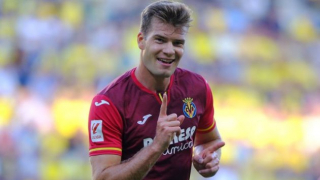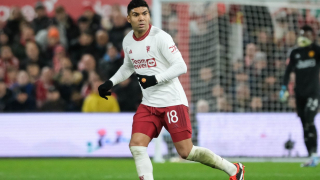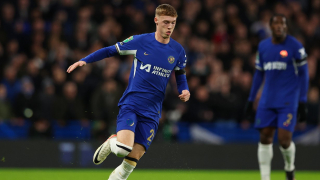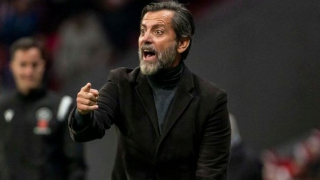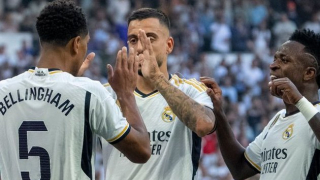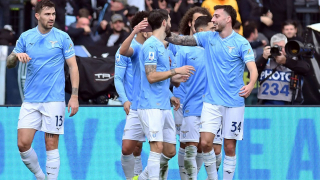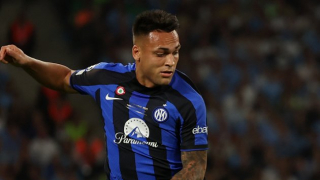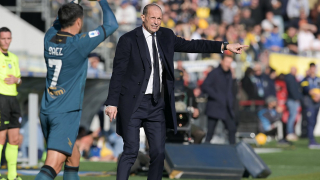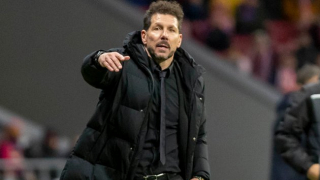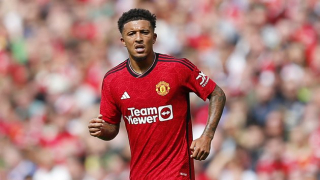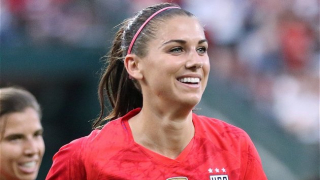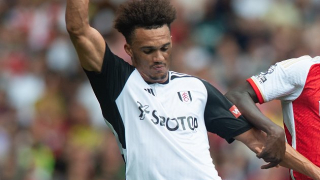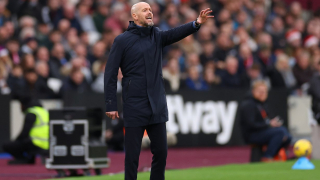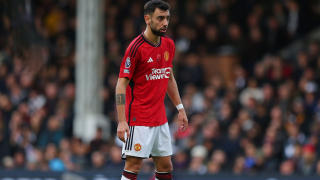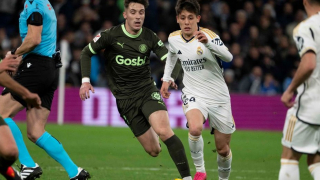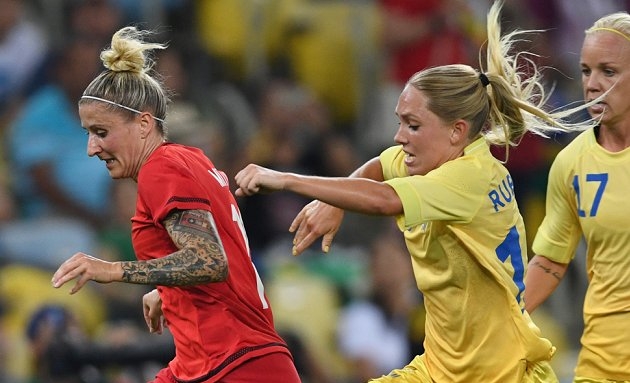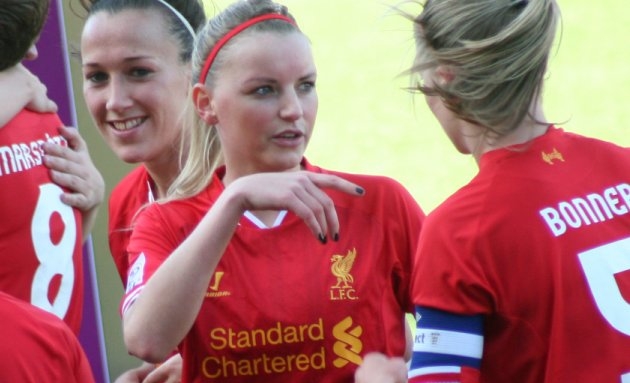This week, we look at the COSAFA National Team Finals in Zimbabwe, which presented some surprising results. We also discuss Emily Lima's termination as Brazil's National Team Coach after less than a year in the job.
COSAFA Regional Finals
The recent 2017 Council of Southern Africa Football Associations (COSAFA) Women's National Team Finals in Zimbabwe, held from September 13 through September 24, 2017, presented some surprising results, particularly in the group stage. In the championship final, South Africa defeated Zimbabwe 2-1, with the winner coming in the 90th minute from Leandra Smeda past Zimbabwe goalkeeper Chido Dzingirai (Flame Lily Queens, run by the National Prison Services). Smeda, who was on the squad for the 2012 Olympics in London, scored 7 goals in the Zimbabwe event and the UWC Ladies nominal midfielder/forward now has 21 goals in 74 matches for the national team. Smeda's UWC Ladies teammate Chrestinah (Thembi) Kgatlana, who played in last summer's Olympics and this year's World Student Games and was named the player of the tournament by COSAFA, had scored the opener for the South Africans just before halftime. Tournament top-scorer Rutendo Makore, who assisted on Zimbabwe's goal against Germany in last summer's Olympics, equalised for Zimbabwe with 17 minutes remaining, scoring her 10th goal in 5 games.
The two finalists also represented the continent at the 2016 Olympics in Brazil. South Africa has now won its fourth regional title out of five held, while Zimbabwe won the crown in 2011 when they also hosted, defeating the Banyana Banyana in the final. South Africa also defeated Zimbabwe to win the 2002 final.
The win was the second success in the competition by interim head coach Desiree Ellis. She is well known in South Africa women's football circles; she was a midfielder on the first women' national team for Banyana Banyana in 1993 and won a COSAFA title in 2002. She also founded a women's team—Spurs Ladies—while she was playing. She has been an administrator, coach and television announcer since retiring. Ellis has made a strong argument as to why the South African Football Federation should make her position permanent, through at least the 2019 WWC tournament.
In the semifinals, South Africa incredibly came back from a 3-0 deficit to Zambia in the last 15 minutes, powered by 2 goals by Smeda and the tying goal by captain Jane Rifiole (TUT-PTA—Tshwane University of Technology) against the Mighty Warriors. The South Africans won on penalty kicks 5-3 after the 3-3 deadlock. In the other semifinal, Zimbabwe easily defeated Kenya 4-0. The Hamarbee Starlets from Kenya were a guest side for the tournament as they are not a member of the Southern African Confederation. Zambia won third place over Kenya, winning on penalties 4-2 after a 1-1 tie.
In the Group Stage, in a tight Group A, Zambia (7 points) advanced as winners after tying Zimbabwe (5 points) 1-1, while the hosts moved into the semifinals with the best second place record among the 3 groups. Malawi (4 points) finished third while Madagascar (0 points) finished fourth, but did score 4 goals, while giving up 17. For Malawi, Tabitha Chawinga of Kvarnsvedens IK in Sweden—who has been a prolific scorer in Sweden—scored a late goal for the She Flames to tie Zimbabwe 3-3. Chawinga is leading the Damallsvenskan this season in scoring with 21 goals, 10 more than the next highest scorer, and was a transfer target of Paris St. Germain last winter.
In Group B, Kenya won all three group games over Swaziland (4 points), Mazambique (4 points) and Mauritius (0 points); the Island nation, like Madagascar, let in 17 goals but failed to score during the 3 games. Mauritius was making their inaugural appearances at the regional tournament. Kenya defeated Mauritius 11-0 and Mozambique 5-2, with Neddy Atieno scored 4 and 3 goals respectively. Atieno plays for Maklanders FC in the Kenya Women's Premier League.
South Africa (7 points) won Group C while Botswana (4 points) tied the Banyana Banyana (1-1) and Lesotho's Beautiful Flowers (3 points) defeated favored Namibia (3 points) 2-1. Namibia finished runners-up to South Africa in 2006 when Zambia hosted the tournament. Namibia brought in Zenatha Coleman (Gintra Universitetas of Lithuania) and Veweziwa Kotjipati (who plays lower division club ball in Germany) for the tournament but the Brave Gladiators, after starting with a 4-0 win over Bostswana, lost to South Africa 3-0 as well as surprising Lesotho 2-1; a win over one of these sides might have seen Namibia qualify for the semifinals. We featured Coleman a few weeks ago in our European Women's Champions League review as her side advanced to the Round of 32, which will be played over two legs this month. They will play FC Zurich with the first leg at home this week. (http://www.tribalfootball.com/articles/the-week-in...).
These regional tournaments provide an opportunity to learn about up and coming players in countries that are trying to build the women's game and compete with the likes of South Africa and Zimbabwe. In Lesotho, 21-year-old Boitumelo Sebastian told the Sunday Express in Lesotho in 2015 about her early years with playing soccer, which involved playing exclusively with boys. She did not face discrimination as they treated her the same as a male and she is now realizing the benefits of that experience in her club and national team play: "I really did not have much of a choice because I grew up in a male-dominated neighbourhood, and I was always playing with the boys. I gradually fell in love with football and then decided to join a boys' team called Emmanuel FC in 2005 where I spent about eight years….The truth of the matter is that playing with boys helped me a lot because they are more aggressive and they never treated me differently, which is why it is easy to shine when playing against ladies' teams now….Fortunately, spending more time with my male teammates helped me a lot and I learned many things from them. I am a determined person and very passionate about football, which makes it easy for me to remain focused and humble. It never really bothered me to play football with boys, which as I said, helped me become the player I am today."
Sebabane talked about the challenges that local female footballers face, with the biggest obstacle being poor organizational structures at all levels: "The biggest challenge we are facing in women's football here in Lesotho is [a] lack of clear development structures, and this is exposed each time we play international matches. Our football standards are way behind and this becomes very clear when we play international matches. However, the positive thing is at least we have a women's football league running now, and hopefully, things will change for the better."
She continued by emphasizing that an education is important for all footballers: "It is important for us, as players, to back our talents with education because we are still amateurs here, so football alone can't sustain us hence one needs a profession. I completed my high school education last year and will probably be furthering my studies starting from August with a South African college where I would want to study electrical engineering if things go according to plan."
Sebabane did say that as a female footballer she feels pressure and has had to make sacrifices: "My friends are doing lots of female stuff which I can't do even if I wanted to because of the pressure that comes with being a footballer. I am focusing on this career, so I don't have much time for social life. I used to have a boyfriend but we ended up going our separate ways because I simply didn't have the time to be with him as often as one would have wished." Sebabane advises young female footballers to 'go for it' and never be discouraged by ignore negative comments: "Anything is possible in life and the girls can achieve a lot for as long they are dedicated to the game. They must be self-motivated and disciplined like I said, because without these attributes, one can easily give up."
According to Sebabane, her aim now is to play in the South African league or overseas and earn a living as a professional footballer. She did have an enquiry from a club in Namibia but she never heard further from them: "I believe I have achieved enough locally because I have played for all the national teams despite being so young. I now want to go further and play where my idol, Portia Modise, played, in Europe." Modise played for Fortuna Hjorring in Denmark and retired in 2015 with 101 international goals, the first African player to surpass 100 goals. As Malawi's Tabitha Chawinga of Kvarnsvedens IK in Sweden as shown, it is possible for talented players from lower ranked countries to succeed in major European leagues. Sebabane is definitely one to watch in the future.
Interestingly, following up on Sebabane's points about the importance of education and her dreams to play abroad, another young Lesotho footballer—Senate Letsie—became the first woman from Lesotho to win an academic and sporting scholarship to play football in America, at Lewis and Clark Community College in Illinois. After 9 games this season (all starts) this season for the national junior college powerhouse, Letsie has adjusted well, scoring 10 goals scored and 8 assists for the undefeated side.
GROUP A P W D L GF GA GD PTS
Zambia (Q) 3 2 1 0 14 5 +9 7
Zimbabwe (Q) 3 1 2 0 8 4 +4 5
Malawi 3 1 1 1 12 12 0 4
Madagascar 3 0 0 3 4 17 13 0
GROUP B P W D L GF GA GD PTS
Kenya (Q) 3 3 0 0 17 2 +15 9
Swaziland 3 1 1 1 5 3 +2 4
Mozambique 3 1 1 1 7 7 0 4
Mauritius 3 0 0 3 0 17 -17 0
GROUP C P W D L GF GA GD PTS
South Africa (Q) 3 2 1 0 7 2 +5 7
Botswana 3 1 1 1 4 5 -1 4
Lesotho 3 1 0 2 2 7 -5 3
Namibia 3 1 0 2 6 5 +1 3
For the winners during the tournament, Nothando (Vivo) Vilakazi (Palace Super Falcons) joined an elite group of players who have already passed the 100 cap mark: Portia Modise, Janine van Wyk, Noko Matlou, Nompumelelo Nyandeni and Amanda Dlamini. Van Wyk, currently playing with the Houston Dash in the NWSL, was not able to play in the tournament since the event did not fall on a FIFA international date and the Dash was finishing their season. Vikakazi, a left back, was the third most capped player in the Banyana Banyana COSASAF tournament squad as Matlou (MA Indies FC) has 134 caps, followed by Nyandeni (JVW FC) on 131.
Goalkeeper Rosanne Barker played collegiately at Pepperdine University in California. She tried out with Portland Thorns in the first year of NWSL in 2013 before finishing the years with Pali Blues of California in the WPSL and then played in Iceland and Norway before returning home to play with Cape Town Roses.
More good news for the Banyana Banyana came in September as they extended their sponsorship agreement with Sasol, the local energy company. This landmark agreement has helped the team to play more internationals and train more frequently.
BANYANA BANYANA SQUAD FOR 2017 COSAFA:
GOALKEEPERS:
Andile DLAMINI Mamelodi Sundowns
Yolula TSAWE JVW FC
Roxanne BARKER Cape Town Roses DEFENDERS:
Koketso TLAILANE TUT-PTA
Noko MATLOU Ma-Indies FC
Bambanani NOLUFEFE Bloemfontein Celtic
Lebo RAMALEPE Ma-Indies FC
Regina MOGOLOLA University of Pretoria
Zanele NHLAPO Mamelodi Sundowns
Nothando VILAKAZI Palace Super Falcons
MIDFIELDERS:
Nompumelelo NYANDENI JVW FC
Leandra SMEDA UWC LADIES
Refiloe JANE TUT-PTA
Rachel SEBATI TUT-PTA
Kholosa BIYANA UKZN
Nkoikoi MABINA Kanatla Ladies
Thembi KGATLANA UWC Ladies
FORWARDS:
Rhoda MULAUDZI Mamelodi Sundowns
Chantelle ESAU Mamelodi Sundowns
Nwabisa KOLISI City Lads
LIMA REPLACED BY ALVAREZ IN BRAZIL
Emily Lima, Brazil's first female Women's National Team Head Coach who was appointed in November of last year, is out as coach, lasting a mere 10 months, A disastrous series of friendlies in the past few months, including three defeats to Australia—one a 6-1 score—and four consecutive losses caused the federation to push the panic button and jettison Lima.Emily Lima (36) played in Brazil, Spain and Italy and for the Brazilian national side at youth level and Portugal's senior side.
Oswaldo Alvarez, who coached the team to a fourth place medal at the Rio Olympics, losing to Sweden on penalties—even though the national team was in residence for months ahead of the Games—was reappointed again after being fired 10 months ago, when Lima was hired. The national team does not appear to intimidate other national team sides as it did in the past, which defeats this year to Australia as well as in the Round of 16 in Canada's World Cup two years ago, has clearly indicated. Australia had lost to Brazil in the past two World Cup finals and though the games were close, there was a gap there.
Marta of the Orlando Price is still a key force at 32 years of age but the side has some talented youngsters coming on, such as North Carolina Courage's Debinha, and veterans like Cristiane (currently playing in China) need to be replaced sooner than later. It will be interesting to see if Alvarez is still in the job for the 2019 WWC in France, which Brazil should make easily, or if they replace him. If so, maybe they should bring Lima back! It's sad that the qualified women's coach was not give the time to re-energize the team.
Next week, we will have our annual National Women's Soccer League end of season review ahead of the semifinals next weekend.
Tim Grainey is a contributor to Tribal Football. His latest book Beyond Bend it Like Beckham on the global game of women's football. Get your copy today.
Follow Tim on Twitter: @TimGrainey

